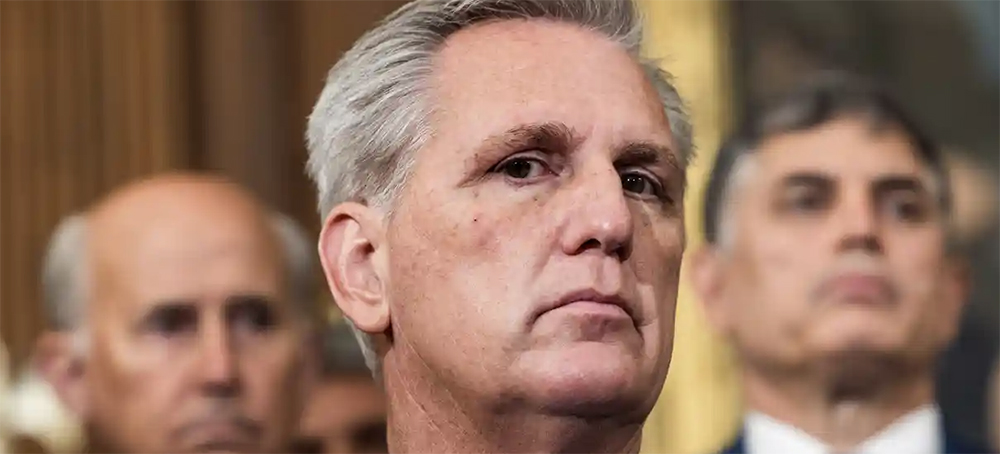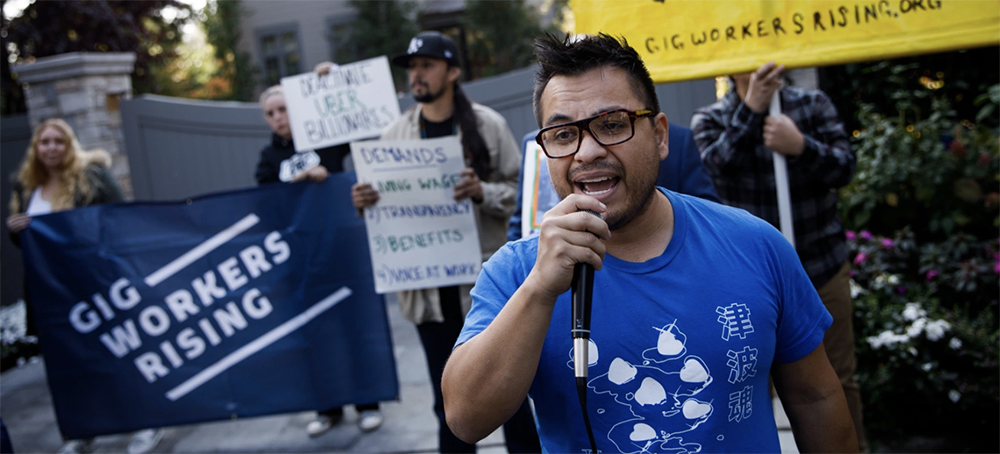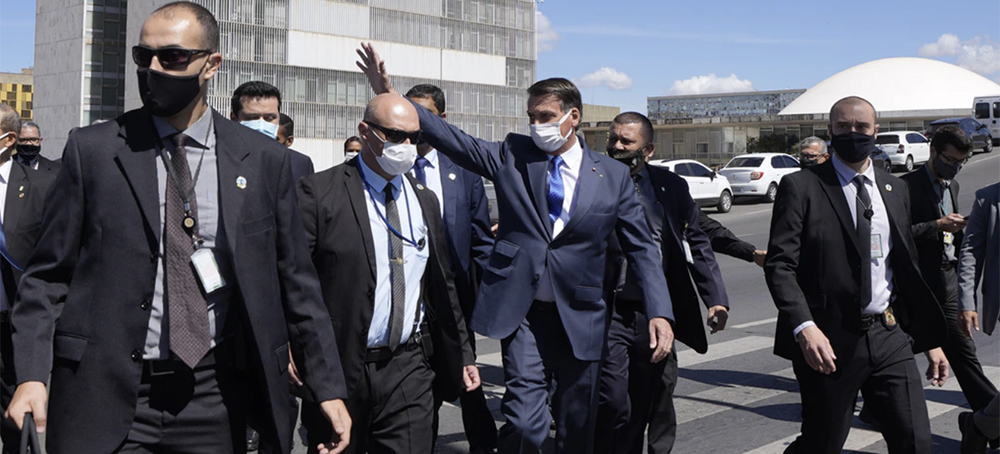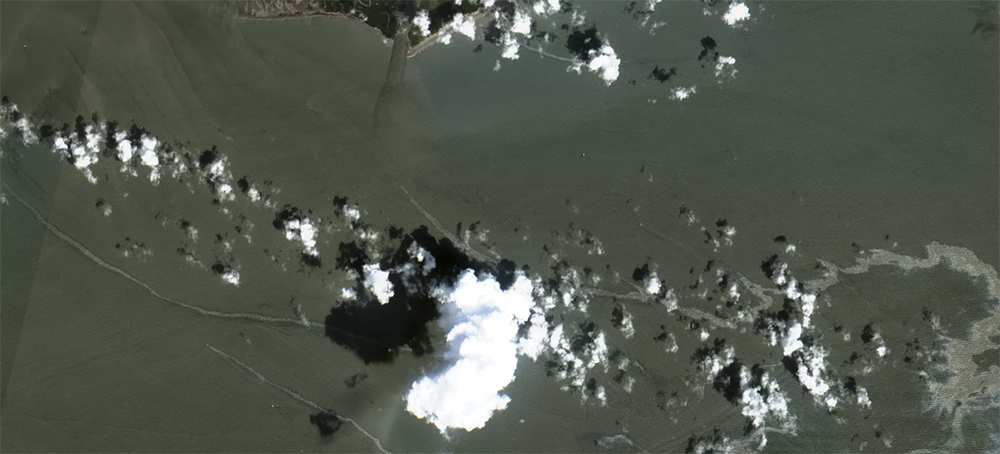Live on the homepage now!
Reader Supported News
Let me say that again. We just experienced the hottest month EVER in the history of the planet.
Now I have never understood how some of my colleagues can look at these events — how they can look at the floods, the rising sea levels, the extreme weather disturbances, the drought, the disease, and the human suffering brought upon us by climate change — and decide that the right answer is to do nothing.
I have never understood how many of the same people can say that it’s too expensive to deal with this issue when economists tell us that the cost of not acting on climate change will total $34.5 trillion in the United States alone in lost economic activity and more than $100 trillion throughout the world by the end of the century.
I have never understood how many of the same people who moan and groan about immigration can choose to do nothing when the World Bank has told us that the effects of climate change could result in the mass migration and displacement of more than 140 million people in Latin America, South Asia and sub-Saharan Africa.
The bad news is that it was a set of human decisions that has gotten us to this point.
The good news is that we can now make the decision to act aggressively in combating climate change and prevent irreparable damage to our country and the planet.
As Chairman of the Senate Budget Committee, I am proud to tell you that we are putting forward a $3.5 trillion reconciliation budget that will be transformative for working families, children, the elderly, the sick and the poor. It will, in my view, be the most consequential legislation for working families in the modern history of our country.
But what I also want you to know is that this Reconciliation Bill constitutes the most aggressive effort ever to combat climate change. It will make massive investments in energy efficiency and retrofitting homes and buildings, it will help transform our energy systems from fossil fuels to wind, solar and other forms of sustainable energy, it will cut carbon emissions in agriculture, it will move us boldly to the electrification of transportation, it will invest heavily in climate justice — and much more.
And let me tell you what else it will do. It will create a Civilian Climate Corps (CCC) — which will put hundreds of thousands of young Americans to work transforming our communities, energy systems, and lands — moving us towards a new, healthy green economy.
At a time when many young people are struggling economically and have the dubious distinction of facing a lower standard of living than their parents, not only will the Civilian Climate Corps provide its members with livable wages and health care, but they will receive substantial educational benefits to enable them to attend college or pay off student debt.
Further, the Civilian Climate Corps will enable young people to receive the job training they need to obtain the many good-paying union jobs in our country that are currently unfilled because of a lack of skilled workers, and will form the backbone of a new American economy that leads the world in clean, green industries. Corps members will learn skills to allow them to pursue meaningful careers after they complete their tenure in the Civilian Climate Corps.
Young corps members will help save the planet by helping to protect and improve our forests, weatherize and electrify housing or be part of a team preparing for and installing a community solar facility. They will be involved in natural climate resiliency improvements, like shoreline and wetlands restoration that protect against rising seas, or environmental remediation that cuts toxic pollution. They will be helping to build new, energy-efficient housing units to combat our housing and climate crisis and improving dilapidated schools.
There is an enormous amount of work to be done as we transform our energy system away from fossil fuel and cut carbon emissions, and the hundreds of thousands of members of the Civilian Climate Corps will be in the forefront of that struggle.
There is a lot of support in Congress for the Civilian Climate Corps, but it is far from unanimous. We need your help.
In solidarity,
Bernie Sanders
 The House minority leader, Kevin McCarthy, claimed it would be illegal for telecom companies to comply with the investigation's records requests. (photo: Jim Lo Scalzo/EPA)
The House minority leader, Kevin McCarthy, claimed it would be illegal for telecom companies to comply with the investigation's records requests. (photo: Jim Lo Scalzo/EPA)
Republicans in Crosshairs of January 6 Panel Begin Campaign of Intimidation
Hugo Lowell, Guardian UK
Lowell writes: "Top Republicans under scrutiny for their role in the events of January 6 have embarked on a campaign of threats and intimidation to thwart a Democratic-controlled congressional panel that is scrutinizing the Capitol attack and opening an expanded investigation into Donald Trump."
House leader Kevin McCarthy threatened retaliation against tech companies that share records with the committee
The chairman of the House select committee into the violent assault on the Capitol, Bennie Thompson, in recent days demanded an array of Trump executive branch records related to the insurrection, as members and counsel prepared to examine what Trump knew of efforts to stop the certification of Joe Biden’s election win.
House select committee investigators then asked a slew of technology companies to preserve the social media records of hundreds of people connected to the Capitol attack, including far-right House Republicans who sought to overturn the results of the 2020 election.
The select committee said that its investigators were merely “gathering facts, not alleging wrongdoing by any individual” as they pursued the records in what amounted to the most aggressive moves taken by the panel since it launched proceedings in July.
But the twin actions, which threatened to open a full accounting of Trump’s moves in the days and weeks before the joint session of Congress on 6 January, has unnerved top House Republicans, according to a source familiar with the matter.
The House minority leader, Kevin McCarthy, decried the select committee’s investigation as a partisan exercise and threatened to retaliate against any telecommunications company that complied with the records requests.
“A Republican majority will not forget,” he warned, in remarks that seemed to imply some future threat against the sector.
The warning from the top Republican in the House amounted to a serious escalation as he seeks to undermine a forensic examination of the attack perpetrated by Trump supporters and domestic violent extremists that left five dead and nearly 140 injured.
But his remarks – which members on the select committee privately consider to be at best, harassment, and at worst, obstruction of justice – reflects McCarthy’s realization that he could himself be in the crosshairs of the committee, the source said.
Most of McCarthy’s efforts to undercut the inquiry to date, such as sinking the prospects of a 9/11-style commission to scrutinize the Capitol attack, have been aimed at shielding Trump and his party from what the select committee might uncover.
But deeply alarmed at the efforts by House select committee investigators to secure his personal communications records for the fraught moments leading up to and during the Capitol attack, McCarthy went on the offensive to pre-emptively protect himself, the source said.
McCarthy was among several House Republicans who desperately begged Trump to call off the rioters as they stormed the Capitol in his name, only to be rebuffed by Trump, who questioned why McCarthy wasn’t doing more to overturn the election.
Thompson previously told the Guardian in an interview that such conversations with Trump would be investigated by the select committee, raising the prospect that McCarthy could be forced to testify about what Trump appeared to be thinking and doing on 6 January.
The statement from McCarthy asserted, without citing any law, that it would be illegal for the technology companies to comply with the records requests – even though congressional investigators have obtained phone and communications records in the past.
The threat is unlikely to be viewed as a violation of federal witness tampering law, which, as part of a broader obstruction of justice statute, makes it a felony under some circumstances to try to dissuade or hinder cooperation with an official proceeding.
Congressman Jamie Raskin, a member of the select committee and the former lead impeachment manager in Trump’s second trial, said that he was appalled by McCarthy’s remarks, which he described as tantamount to obstruction of justice.
“He is leveling threats against people cooperating with a congressional investigation,” Raskin said. “Why would the minority leader of the House of Representatives not be interested in our ability to get all of the facts in relation to the January 6th attack?”
Meanwhile, other members on the select committee have also seized on McCarthy’s threat as a reminder that Republicans could not be trusted to engage in the inquiry in good faith, according to a source connected to the 6 January investigation.
It also underscored to them, the source said, the nervousness among top Republicans as the select committee ramps up its work, even though the inquiry is still in its early days and has yet to sift through thousands of pages of expected evidence.
Emboldened by McCarthy’s combative stance, Trump denounced the select committee as a “partisan sham”, while Republicans under scrutiny by the panel such as Marjorie Taylor Greene threatened any companies that complied with the records requests would be “shut down”.
The chairman of the House Freedom Caucus, Andy Biggs, is now also asking McCarthy to remove from the Republican conference Liz Cheney and Adam Kinzinger – the two vocal critics of Trump appointed to the select committee – whom he called “spies” for Democrats.
Biggs on Thursday suggested in a letter, first reported by CNN, that Cheney and Kinzinger should be ejected because they are involved in investigating Republicans over 6 January and the party should be able to strategize without having the pair present at conference meetings.
Still, McCarthy remains unable to shape an investigation likely to prove politically damaging to Trump and to Republicans at the ballot box at the midterms next year, a reality that has come largely as a result of his own strategic miscalculations.
The proposed 9/11-style commission into the Capitol attack had envisioned a panel with equal power between Democrats and Republicans, and McCarthy’s decision to boycott the select committee in a flash of anger inadvertently left Trump without any defenders.
 A hat store advertises that they are hiring in Annapolis, Md., on May 12. (photo: Jim Watson/AFP/Getty Images)
A hat store advertises that they are hiring in Annapolis, Md., on May 12. (photo: Jim Watson/AFP/Getty Images)
 Carlos Ramos of Bakersfield, a Lyft driver and an organizer from Gig Workers Rising, speaks during a rally in front of the home of Bill Gurley, an early Uber investor, on Nov. 6, 2019, in Atherton, Calif. (photo: Dai Sugano/Bay Area News Group)
Carlos Ramos of Bakersfield, a Lyft driver and an organizer from Gig Workers Rising, speaks during a rally in front of the home of Bill Gurley, an early Uber investor, on Nov. 6, 2019, in Atherton, Calif. (photo: Dai Sugano/Bay Area News Group)
 Military forces in Guinea said Sunday that they had detained President Alpha Conde (center) and suspended the country's parliament and constitution in a coup. (photo: Guinea Military/EPA-EFE)
Military forces in Guinea said Sunday that they had detained President Alpha Conde (center) and suspended the country's parliament and constitution in a coup. (photo: Guinea Military/EPA-EFE)
 Brazilian president Jair Bolsonaro is surrounded by security agents as he waves to supporters while leaving the Chamber of Deputies headquarters in Brasília, Brazil, on Aug. 9, 2021. (photo: Eraldo Peres/AP)
Brazilian president Jair Bolsonaro is surrounded by security agents as he waves to supporters while leaving the Chamber of Deputies headquarters in Brasília, Brazil, on Aug. 9, 2021. (photo: Eraldo Peres/AP)
 In a satellite image, an oil slick is shown on Sept. 2, south of Port Fourchon, La., following Hurricane Ida. (photo: Maxar Technologies/AP)
In a satellite image, an oil slick is shown on Sept. 2, south of Port Fourchon, La., following Hurricane Ida. (photo: Maxar Technologies/AP)
Talos Energy, the Houston-based company currently paying for the cleanup, said in a statement issued Sunday evening that the busted pipeline does not belong to them.
The company said it is working with the U.S. Coast Guard and other state and federal agencies to coordinate the response and identify the owner of the ruptured pipeline.
Two additional 4-inch pipelines were also identified in the area that are open and apparently abandoned. The company's statement did not make clear if oil was leaking from the two smaller pipelines, but satellite images reviewed by The Associated Press on Saturday appeared to show at least three different slicks in the same area, the largest drifting more than a dozen miles (more than 19 kilometers) eastward along the Gulf coast.
The AP first reported Wednesday that aerial photos showed a miles-long brown and black oil slick spreading about 2 miles south of Port Fourchon, La. The broken pipe is in relatively shallow water, at about 34 feet of depth.
Talos said the rate of oil appearing on the surface had slowed dramatically in the last 48 hours and no new heavy black crude had been seen in the last day.
So far, the spill appears to have remained out to sea and has not impacted the Louisiana shoreline. There is not yet any estimate for how much oil was in the water.
The Coast Guard said Saturday its response teams are monitoring reports and satellite imagery to determine the scope of the discharge, which is located in Bay Marchand, Block 4. Talos previously leased Bay Marchand, Block 5, but ceased production there in 2017, plugged its wells and removed all pipeline infrastructure by 2019, according to the company.
The area where the spill is located has been drilled for oil and gas for decades. Federal leasing maps show it contains a latticework of old pipelines, plugged wells and abandoned platforms, along with newer infrastructure still in use.
With the source of the oil unclear, Talos hired Clean Gulf Associates to respond to the spill. Clean Gulf, a nonprofit oil-spill response cooperative that works with the energy exploration and production industry, has had two 95-foot vessels at the scene of the spill since Wednesday attempting to contain and recover crude from the water.
The Bay Marchand spill is one of dozens of reported environmental hazards state and federal regulators are tracking in Louisiana and the Gulf following the Category 4 hurricane that made landfall at Port Fourchon a week ago. The region is a major production center of the U.S. petrochemical industry.
The AP also first reported Wednesday on images from a National Atmospheric and Oceanic Survey that showed extensive flooding and what appeared to be petroleum in the water at the sprawling Phillips 66 Alliance Refinery located along the Mississippi River south of New Orleans.
After AP published the photos, the Environmental Protection Agency tasked a specially outfitted survey aircraft to fly over that refinery on Thursday, as well as other industrial sites in the area hardest hit by the hurricane's 150-mph winds and storm surge.
The Louisiana Department of Environmental Quality said a state assessment team sent to the Alliance Refinery observed a spill of heavy oil being addressed with booms and absorbent pads. A levee meant to protect the plant had breached, allowing floodwaters to flow in during the storm and then back out as the surge receded.
State environmental officials said there was also no estimate yet available for how much oil might have spilled from the Phillips 66 refinery.
Follow us on facebook and twitter!
PO Box 2043 / Citrus Heights, CA 95611


